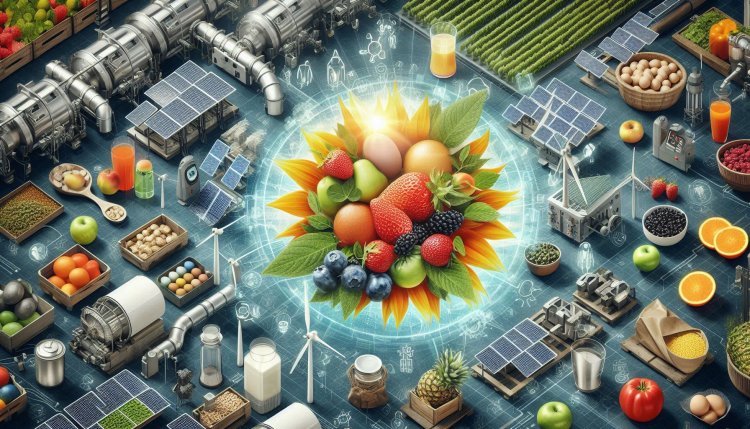Renewable Energy in the Food and Beverage Industry
Discover how the food and beverage industry is incorporating renewable energy to reduce environmental impact and increase sustainability.

Renewable Energy in the Food and Beverage Industry
The food and beverage industry is one of the largest energy consumers globally, accounting for a significant portion of energy consumption and greenhouse gas emissions. In recent years, there has been a growing emphasis on sustainability and the adoption of renewable energy sources within the industry. Renewable energy offers several benefits to food and beverage companies, including cost savings, reduced environmental impact, and enhanced brand reputation.
Types of Renewable Energy Sources
There are several types of renewable energy sources that food and beverage companies can utilize to reduce their carbon footprint and energy costs:
- Solar Power: Solar panels can be installed on rooftops or open land to generate electricity from sunlight. This can help companies reduce their reliance on fossil fuels and lower their electricity bills.
- Wind Power: Wind turbines can be installed on-site or off-site to generate electricity from wind energy. Wind power is a clean and renewable energy source that can help companies offset their electricity consumption.
- Biomass: Biomass energy involves using organic materials such as agricultural residues, food waste, and wood pellets to generate heat and electricity. This renewable energy source can help food and beverage companies reduce waste and lower their energy costs.
- Hydropower: Hydropower utilizes the energy of flowing water to generate electricity. Food and beverage companies located near rivers or water bodies can harness hydropower to meet their energy needs sustainably.
Benefits of Renewable Energy in the Food and Beverage Industry
Implementing renewable energy solutions in the food and beverage industry can have several advantages:
- Cost Savings: By generating their own renewable energy, companies can reduce their electricity bills and save on energy costs in the long run.
- Environmental Impact: Renewable energy sources produce lower greenhouse gas emissions compared to traditional fossil fuels, helping companies reduce their carbon footprint and contribute to environmental sustainability.
- Energy Security: By diversifying their energy sources and relying on renewable energy, food and beverage companies can enhance their energy security and reduce their vulnerability to energy price fluctuations.
- Regulatory Compliance: Many countries have regulations and incentives in place to encourage the adoption of renewable energy. By investing in renewable energy solutions, companies can ensure compliance with environmental standards and potentially qualify for government incentives.
- Brand Reputation: Consumers are increasingly conscious of environmental issues and sustainability. By demonstrating a commitment to renewable energy and sustainability practices, food and beverage companies can enhance their brand reputation and attract environmentally conscious customers.
Case Studies
Several food and beverage companies have already made significant investments in renewable energy solutions:
- Unilever: Unilever, a multinational consumer goods company, has set a goal to use 100% renewable energy across all its operations by 2030. The company has been investing in solar and wind power projects to achieve this target.
- Anheuser-Busch InBev: Anheuser-Busch InBev, one of the world's largest brewing companies, has committed to sourcing 100% of its electricity from renewable sources by 2025. The company is investing in solar and wind energy projects to power its breweries and reduce its carbon footprint.
- General Mills: General Mills, a global food company, has been actively pursuing renewable energy initiatives, including the installation of solar panels at its manufacturing facilities. The company aims to reduce its greenhouse gas emissions and operational costs through renewable energy investments.
Challenges and Considerations
While there are clear benefits to adopting renewable energy in the food and beverage industry, there are also challenges and considerations to be aware of:
- Upfront Costs: The initial investment required for installing renewable energy systems can be significant, and companies may need to carefully evaluate the financial implications before committing to renewable energy projects.
What's Your Reaction?

















